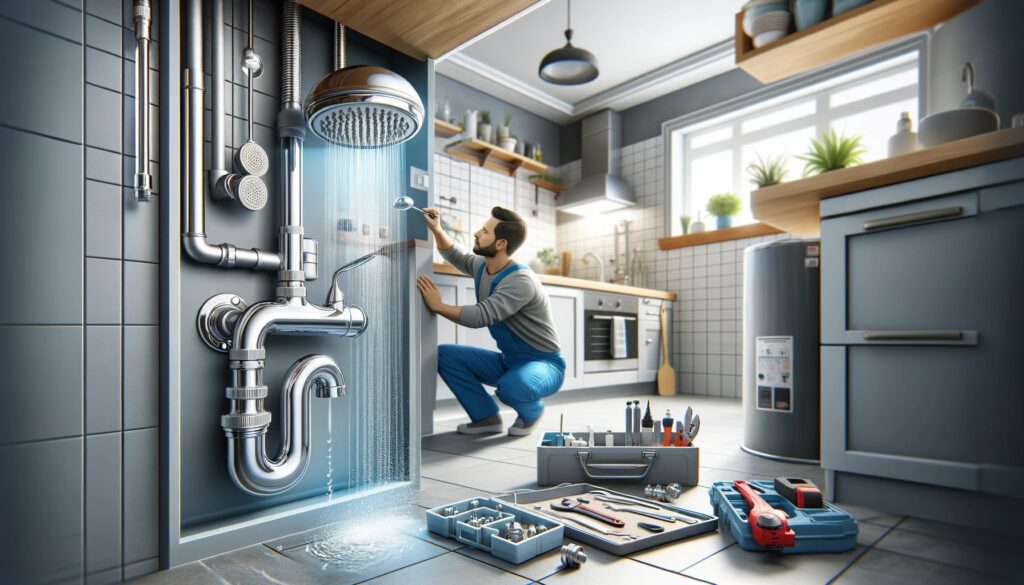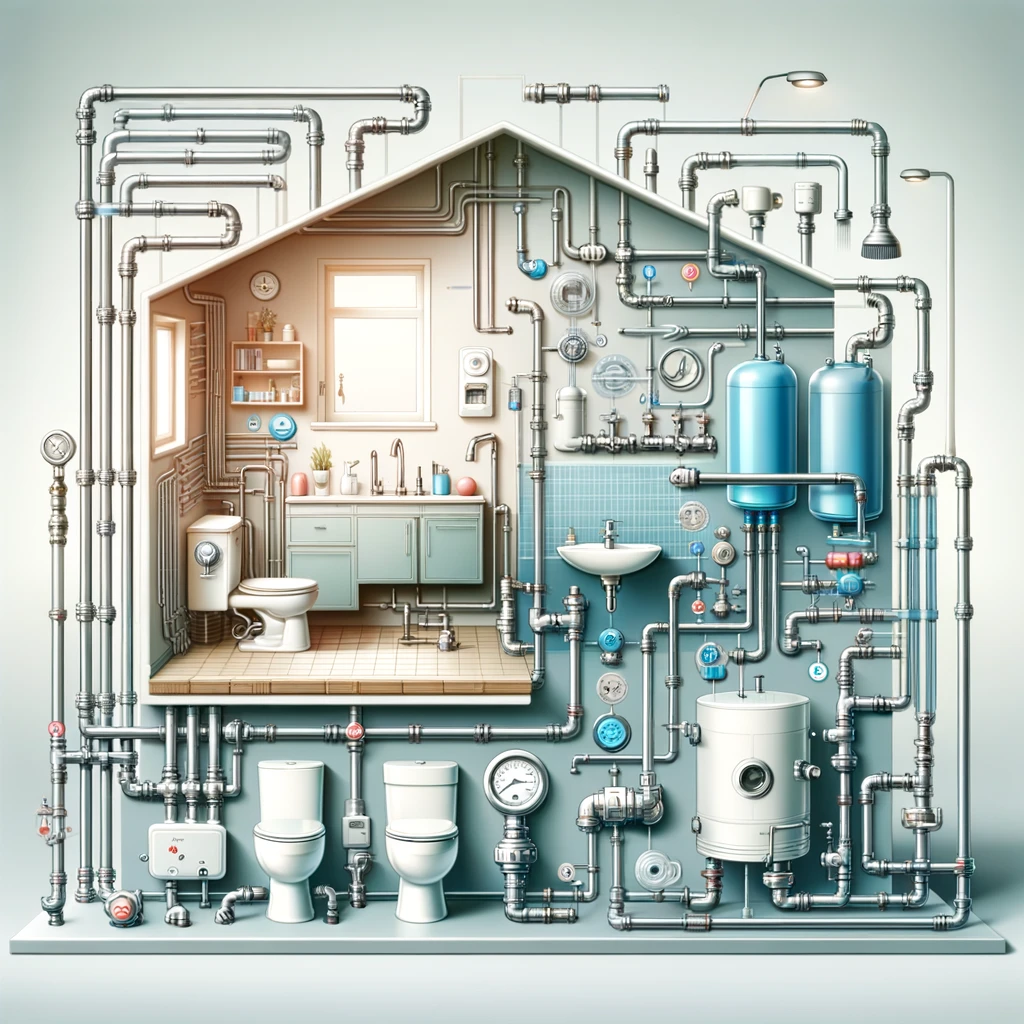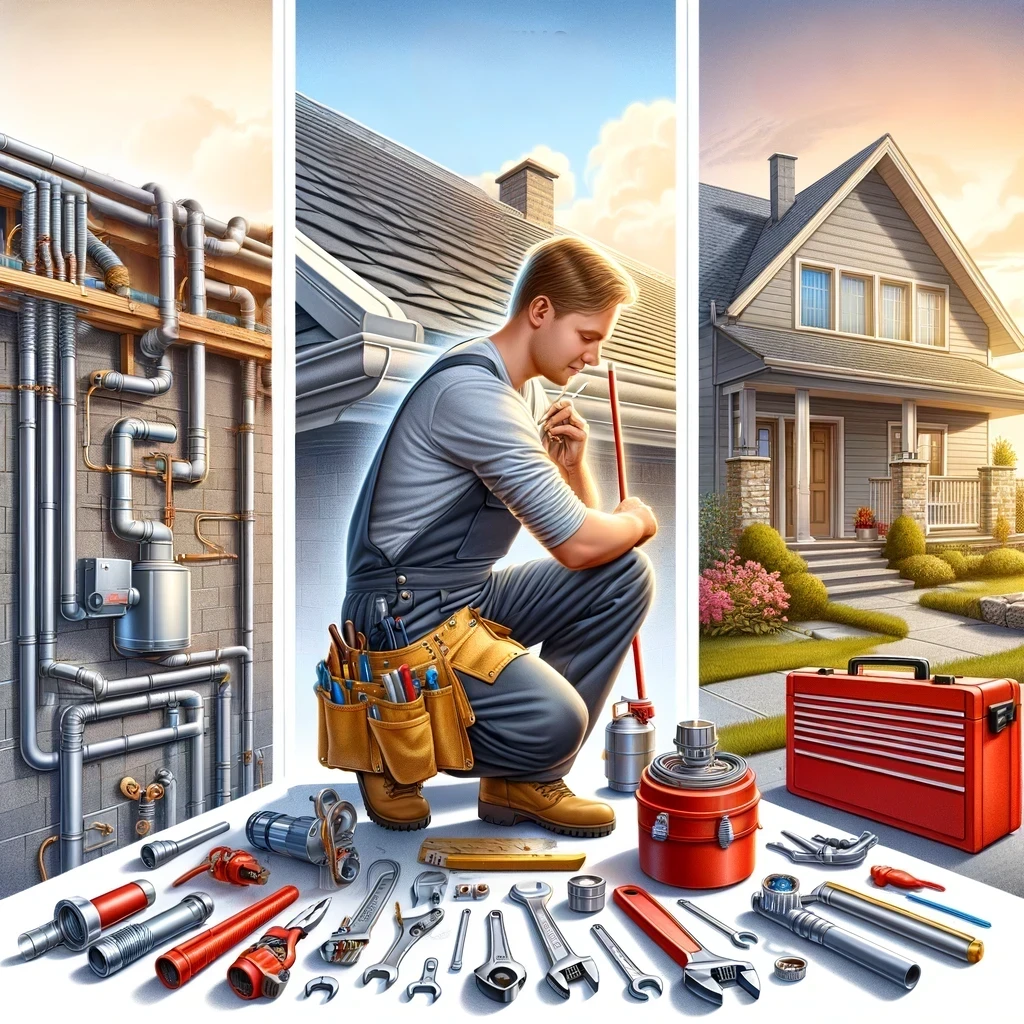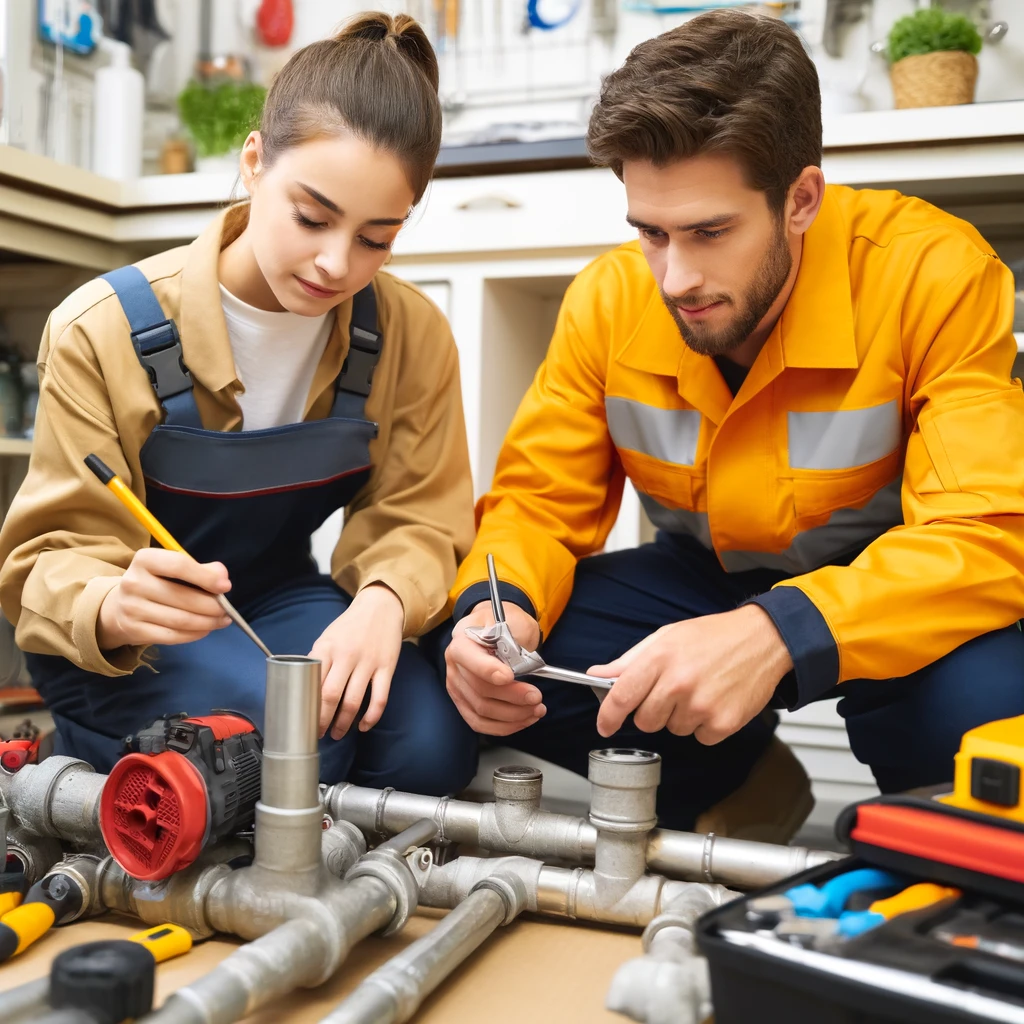Communicating with Plumbers Effectively: Why Communication Matters With Your Plumber
Homeowners who succumb to their fear and do not embark on a plumbing project can have themselves running circles with the piping, valves and mumbo-jumbo. While many aspects come into play to guarantee the hassle-free completion of every job, there is one key ingredient that counts the most: clear communication with your plumber.
The most important part of a plumber-homeowner relationship is clear communication. And the more you understand what is being done and are able to articulate your plumbing issues, the better decisions you can make diligently. This clarity eliminates confusion that could result in very expensive repairs, aggravating outages and unnecessary headaches.
On the other hand, miscommunication will turn a small leak into a disaster fast. For example, you tell them about a dripping faucet word picture and the plumber shows up to repair your hidden pipe burst with just one wrench. This usually culminated in a high cost to complete, longer than expected timelines, and an unsatisfied outcome on both sides.
By having a honest conversation with your plumber about what can be done and why, you guys develop an understanding of each other and can have much more smoother ride especially during the emergency scenario but not limited to it. A well-defined line of communication encourages trust and transparency, meaning that your plumbing needs will be addressed with skill and precision.
For detailed information about plumbing works, don’t miss our The Ultimate Guide to Plumbing Work 2024: What is plumbing work, Why It Matters, and How to Find the Right Plumber
Getting Ready for Your Plumber – How to Create the Best Environment
Like a doctor needs your medical history for proper diagnosis, you plumber thoroughly benefits from background information on your plumbing problem: Doing this creates an efficient and successful service callTake steps beforehand to Book a Pro.
First Step: Correctly identifying the pains Instead of, “the sink is leaking,” tell us whether it’s a slow drip, steady stream, or the faucet isn’t functioning at all. Take note of where the issue is happening and any other pertinent information, such as when it occurs or what appears to set it off.
Sometimes a picture is worth a thousand words Take some photos or videos of the plumbing issue, leaks, broken fixtures, strange water flow. This visual record gives the plumber some background that can help with accurate diagnostics, possibly leading to a quicker repair process.
But before the plumber gets there, think about financial boundaries. Search up average prices for common plumbing repairs in your area so that you have an idea of how the charges will be. Be upfront about your budget Be open with your plumber about what you want to spend in order to explore appropriate solutions and prevent any surprises on the final bill.
At last see to it that access to your work area is un-complicated. Remove any messes, or obstacles that might get the plumber stuck with his work on the pipes and fixtures. This ensures that the plumber saves time and is able to attend to his or her primary task Immediately making the repair Faster and efficient.
Self Help Guide to Plumbing: Just a Few Key Terms Homeowners Should Know
Think of it as though you were calling a mechanic for help with what might be wrong with your car, and yet not knowing the difference between an engine and transmission. You can also ask more informed questions when you speak to a plumber, and understand the solutions they are proposing.
Although you do not have to become a plumber yourself, understanding key terminology helps get everyone on the same page without any lost in translation. In order that you may better swim in the sea of plumbing terminology, here is a table detailing some basic
terms:
| Pipe | A tube used to convey water, gas, or drainage. |
| Drain | A pipe or channel designed to carry away wastewater. |
| Vent | A pipe that allows air to enter and exit the plumbing system. |
| Valve | A device used to control or shut off the flow of water or gas. |
| Fixture | A plumbing device connected to the water supply system (e.g., sink, toilet, shower). |
| Leak | An unintentional escape of water or gas from a pipe or fixture. |
| Pressure | The force exerted by water or gas within the plumbing system. |
| Code | A set of regulations governing plumbing installations and repairs. |
| Permit | An official authorization required for certain plumbing projects. |
| Estimate | A written document outlining the expected costs of a plumbing job. |
Which brings me to why you should learn some fundamental plumbing terminology — in the complex universe of explanation, it would be like learning your ABCs before delving into reading Moby Dick. By learning about these common terms, you’re giving yourself a foundation to communicate with your plumber the right way.
- Pipe: Pipe is the lifeblood of any plumbing system, as it serves as a conduit for water, gas or drainage. They are made of PVC, copper or galvanized steel circuits.
- Drain: Drains are an important part of plumbing systems that remove wastewater from sinks, showers, toilets and more
- Vent: To allow air into the plumbing system while facilitating proper drainage, pipes that push out and suck in the vent.
- Valve: A valve is a device that regulates, directs or controls the flow of a fluid within a plumbing system. Some of the many types are ball valves, gate valves, and globe valves.
- Fixture: A plumbing device that is directly connected to the water supply system (e.g., sinks, toilets,tubs and showers).
- Leak: Leaks are when water or gas escapes from pipes or fixtures without your intention and forecast problems in the plumbing system.
- Pressure: Pressure is the force that water or gas within the plumbing system exerts, dependent on factors like elevation and pump systems.
- Plumbing codes pertain to regulations that set specific standards and guidelines for the installation, new construction, renovation or additions of plumbing systems.
- You Must Have a Permit: Most local municipalities require permits to make sure the work is compliant with local building codes and regulations.
Quote: A document written by plumbers, estimates for the expected price of a plumbing job
Get the processing fees reduced or eliminated – Navigating Quotes, Contracts, and Payments: Protecting Yourself and Your Investment
Having a good idea of the finances involved with your plumbing project is an important part in making it a successful and stress-free one for you and your plumber. This upfront transparency instills confidence and it also avoids any future disagreements, misconception during the project.
Get Multiple Quotes From A Couple Of Plumbers Before Pulling The Trigger On Any Plumbing Work One of the very best strategies to have an idea about what you must pay for professional service is always by soliciting bids from several alternatives. A good quote should take into account multiple aspects of the project such as scope of work, materials needed, labor costs if you hire someone to do it for you and time frame. This in-depth analysis helps you to decide wisely which is a better quality at the same time an affordable solution.
When you have decided on a plumber to undertake your work, you must get the agreement in writing. This is a contract by which both parties are bound and hence it protects the interests of all parties because they know what exactly there will be expected delivery. A contract will have a written, detailed description of the work to be done and what it covers, material costs, the timeline for completion that both parties can agree upon as reasonable and a payment schedule. When you spell this out, both of you will know what to expect which minimizes the possibility that one party or another is making assumptions can lead to arguments down the road.
When negotiating payment terms with your plumber, both transparency and flexibility is important. In order to fit the needs of their clients, reputable professionals can be expected to accept various methods of payment such as cash, checks or credit cards. Be suspicious of contractors who require 100% payment before work has begun or for larger projects, as this may be a sign they are looking to scam you. Instead, a reasonable payment plan usually is an initial down payment after agreeing, some milestones throughout the project — only enough to keep you paid in full and get paid at the end when everything’s done.
This boils down to what good and honest plumber will offer which is a truthful estimate of the cost, a full breakdown of costs in their quote, and an agreed payment plan before work commences. Learn how these critical measures can inadvertently guard you from poor outcomes while simultaneously giving you added peace of mind which leads to professional credibility! Following these tips will help you ensure that your plumbing project will go smoothly and successfully and you and other party can be satisfied with the results.
Forge a long relationship benefits extend beyond current project upcoming

credit: localiq
Although you might only need to hire a plumber once in a while for your home projects, there are many benefits homeowners receive by establishing working relationships with dependable plumbers over the long term. It’s like having a primary care physician for your home’s plumbing — someone that knows your system and is there or can be there quickly when emergencies happen.
Priority service is a major benefit of having a long-term plumbing relationship. Develop a relationship with a plumber who is more likely to get timely service on every job — including emergencies which can mean bypassing long wait times some have when trying to establish new customers. Especially in cases of a crisis plumbing situation, this can give peace and ensure that your issue will be solved as quickly as possible, reducing the damage. This means that Brand X could face a significant loss because the customer will likely benefit from an exclusive deal in which as new method of advertising if no buys it. Plumbers do understand the importance of repeat business so they might offer special discounts or loyalty programs if you have trusted them time and again since it helps their bottom line too.
Moreover, a long-term relationship gives you security. Hearing that you have a trusted plumber available to come out with just a call eases anxiety over unforeseen plumbing issues. A familiar face who knows what they are doing and will make sure all your issues are resolved quickly, without a larger workload for UpperNet.
Remember- Pay it Forward or Back by sharing feedback and referrals in return for good sevice! The plumbing industry as a whole holds positive feedback and recommendations in high esteem, meaning that great reviews can really help your plumber blossom by both bringing in new clients and validating all of their hard work coined away using the trade.
Frequently Asked Questions About Working with Plumbers
What Mistakes You Have to Avoid If You Come with DIY Plumbing Work?
One of the common mistakes people make with DIY plumbing is incorrectly using Teflon tape often by wrapping it in the wrong direction or failing to use enough. This is just the start — other mistakes to watch for are that: you may forget to seal the end of the pipe, use tape where it’s not needed, have too loose a wrap and fail to introduce pipe dope. It’s always a good idea to check out references for example the ‘6 Plumbing Mistakes DIYers Make with Teflon Tape’ video you could find on YouTube.
What is the best way to inform my plumber of a plumbing situation?
Describe the problem in as much detail as you can. Dont just say the sink is leaking but are more specific with its location, severity and any time associated triggers (eg a slow drip under the kitchen sink worsens at night) It would be a great help for the plumber if you were to take some pictures or even shoot videos of the problem.
Why Should You Get An Itemized Quote And A Written Conformity For Your Plumbing Task?
Detailed quotes are a way for you compare pricing between plumbers and to make sure everyone is on the same page with what is being done. The written agreement is also a safeguard for both parties to know the scope of work, terms of payments and timelines — thereby lessening chances of misunderstanding between each other.





